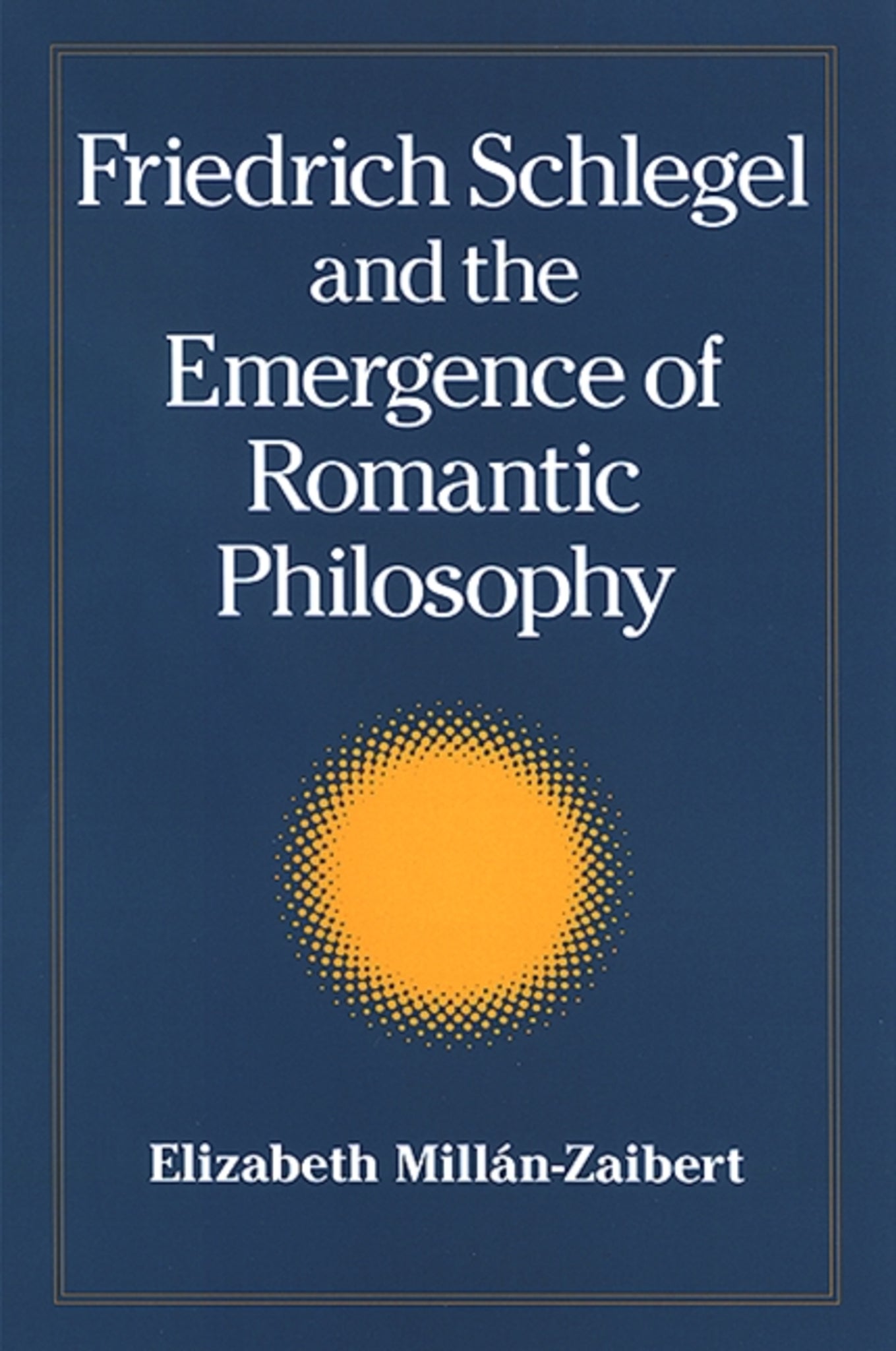We're sorry. An error has occurred
Please cancel or retry.
Friedrich Schlegel and the Emergence of Romantic Philosophy

Some error occured while loading the Quick View. Please close the Quick View and try reloading the page.
Couldn't load pickup availability
- Format:
-
05 April 2007

The origins of early German Romanticism and the philosophical contributions of the movement's most important philosopher.
This book addresses the philosophical reception of early German Romanticism and offers the first in-depth study in English of the movement's most important philosopher, Friedrich Schlegel, presenting his philosophy against the background of the controversies that shaped its emergence. Elizabeth Millán-Zaibert begins by distinguishing early German Romanticism from classical German Idealism, under which it has all too often been subsumed, and then explores Schlegel's romantic philosophy (and his rejection of first principles) by showing how he responded to three central figures of the post-Kantian period in Germany-Jacobi, Reinhold, and Fichte-as well as to Kant himself. She concludes with a comprehensive critique of the aesthetic and epistemological consequences of Schlegel's thought, with special attention paid to his use of irony.


"…this book is a useful adjunct to the work of [Frederick] Beiser, [Andrew] Bowie and [Manfred] Frank." — Philosophy in Review
"…Millán-Zaibert makes a significant and positive contribution to the growing list of contemporary scholarship in the area of early German romantic philosophy … [she] does an excellent job of engaging Schlegel's thought in the context of Kant, Spinoza, Fichte, Hegel, and other heavyweight philosophers." — Kinesis
"…[an] important book." — CHOICE
"Millán-Zaibert makes a convincing argument that Schlegel has a very sensible and relevant philosophical position, and that it has been generally misunderstood and underappreciated. I believe everyone working in the field will be indebted to this volume and will work with it regularly." — Karl Ameriks, coeditor of The Modern Subject: Conceptions of the Self in Classical German Philosophy
Acknowledgments
Introduction
1. Finding Room for the Romantics between Kant and Hegel
Philosophy and Early German Romanticism
The Literary Dimensions of Early German Romanticism
Defining Romanticism
Schlegel's Antifoundationalism
Overview
2. Searching for the Grounds of Knowledge
Idealism: From Misconceptions to Post-Kantian Variations
Searching for the Unity of Thought and Being: Idealist Jäger versus Romantic Spürhunde
Frank's Romantic Realists versus Beiser's Romantic Idealists
On Why Schlegel Is Not Hegel
Romantic Skepticism
3. Fichte's Wissenschaftslehre: A Tendency to Be Avoided?
Jacobi's Salto Mortale
Schlegel's Reaction to the Salto
Reinhold's Elementarphilosophie
Aenesidemus and the Shift from Principle to Fact of Consciousness
Fichte's Move from Fact to Act of Consciousness
4. Niethammer's Influence on the Development of Schlegel's Skepticism
The Foundations of Fichte's Wissenschaftslehre
The Clash between Schmid and Fichte
Fichte and Schlegel on Critical Philosophy
Fichte's Mystical Errors
The Spirit versus the Letter of Fichte's Philosophy
5. Critique as Metaphilosophy: Kant as Half Critic
Niethammer's Skepticism
Niethammer's Appeal to Common Sense
Schlegel's Philosophical Debut
Schlegel's Critique of Niethammer's Appeal to Common Sense
Schlegel's Historical Taxonomy
6. Philosophy in Media Res
Revolution, Scientific Method, and Kant's Critical Project
Critiquing the Critical Philosopher
Away from Kant: Schlegel's Historical Turn
7. The Aesthetic Consequences of Antifoundationalism
The Wechselerweis and the Search for Truth
Philosophy "in the Middle":Between Fichte and Spinoza
Destroying the Illusion of the Finite: Schlegel's Critique of the Thing
Wilhelm Meister: Schlegel's Model of Coherence
Notes
The Modern Spirit of Romanticism
Understanding, Misunderstanding, and Irony
Irony and the Necessity of Poetry
Bibliography
Index



